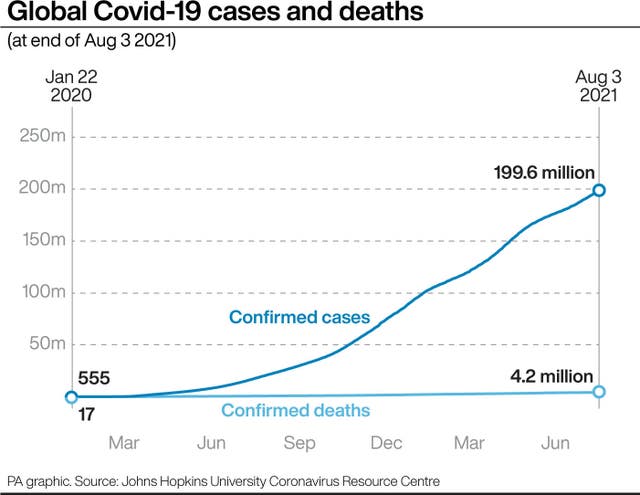
Japan’s government is introducing a contentious policy in which coronavirus patients with moderate symptoms will isolate at home instead of in hospitals, as new cases surge in Tokyo to record levels during the Olympic Games.
Prime minister Yoshihide Suga’s plan, which aims to save hospital beds almost exclusively for those with serious symptoms or at risk of developing them, is a major policy shift as new cases in the capital have more than tripled since the Olympics began on July 23.
Tokyo reported 4,166 new cases on Wednesday, an all-time high since the pandemic started early last year.

The new policy, introduced this week, was debated in parliament on Wednesday. Opposition as well as some governing party lawmakers and experts charged that the lives of people isolating at home without adequate care would be at risk.
Mr Suga, who has been criticised for insisting on hosting the Olympics despite public virus fears, says there is no evidence linking the upsurge in cases to the Games.
Infections, propelled by the more contagious Delta variant, could accelerate to 10,000 a day by mid-August, some experts say. They called for a current state of emergency in Tokyo and four other areas to be expanded nationwide.
The emergency measures, which focus on alcohol bans and shorter hours for eateries, are increasingly ignored by the public who are tired of restrictions.
“The pandemic has now entered a new phase,” health minister Norihisa Tamura said in parliament. “Hospital capacity is limited.”
He defended the home isolation policy as necessary to prevent a medical collapse similar to what happened in April in Osaka, when thousands of people became more ill and some died at home while waiting for hospital beds.
Mr Tamura, cautioning against a repeat of that situation, urged people to avoid all non-essential outings to slow infections.
In Tokyo, more than 14,000 patients with mild symptoms are currently isolating at home — more than a 10-fold increase from a month ago — and about 8,400 others are waiting for beds in hospitals or special hotels.


Comments: Our rules
We want our comments to be a lively and valuable part of our community - a place where readers can debate and engage with the most important local issues. The ability to comment on our stories is a privilege, not a right, however, and that privilege may be withdrawn if it is abused or misused.
Please report any comments that break our rules.
Read the rules here